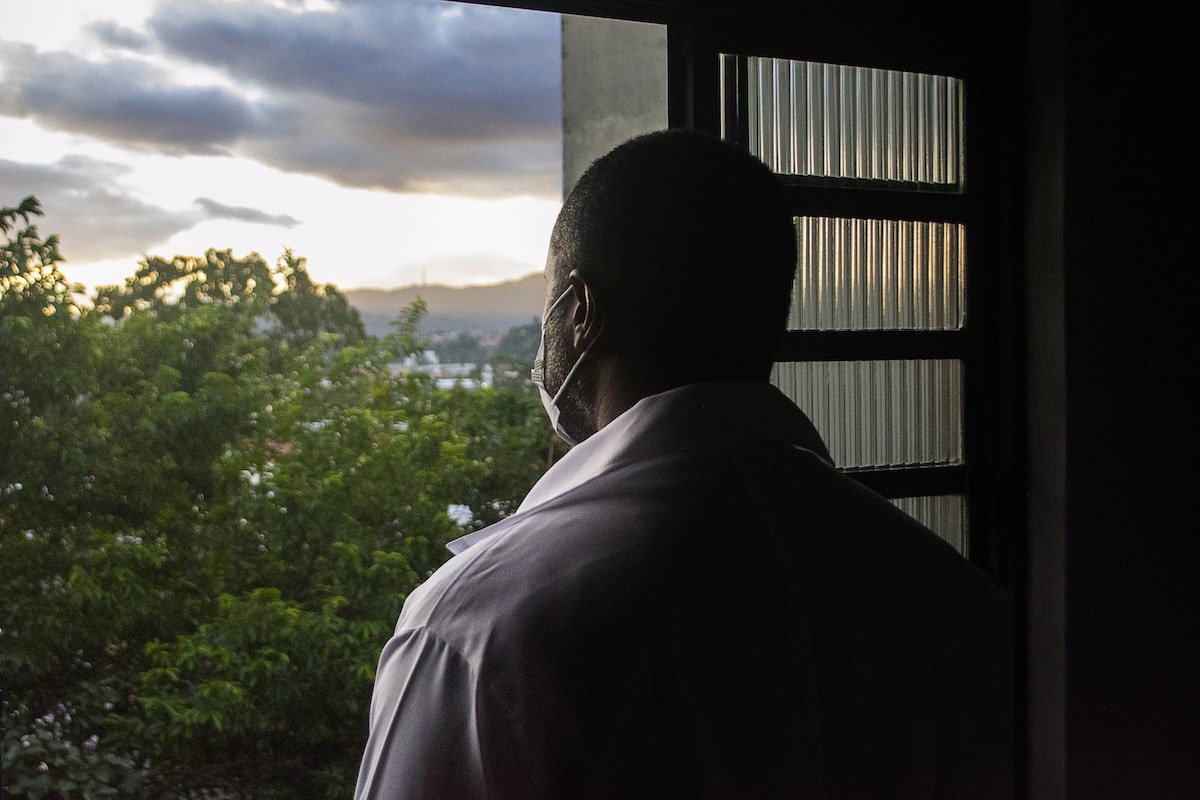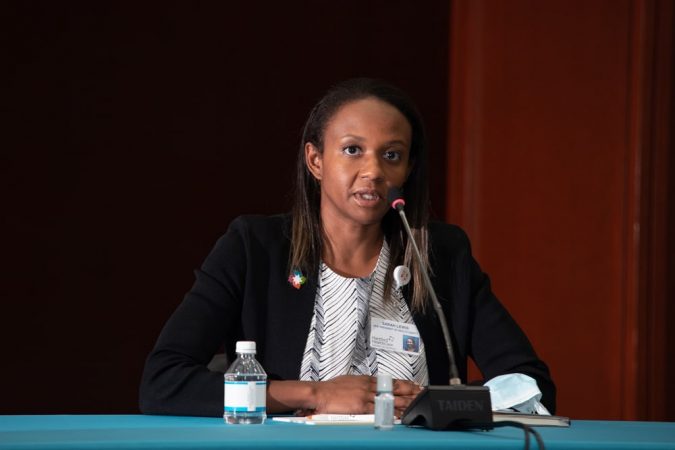<< Back
COVID-19 Roundtable: How to Get Vaccine to All Segments of State’s Population

August 21, 2020
COVID-19 shed a long overdue and bright light on historic and systemic inequities in the healthcare of minority populations. If you are Black in Connecticut and get COVID-19, you are more than twice as likely to die and five times more likely to be hospitalized.
In a roundtable discussion hosted by Hartford HealthCare and moderated by Sen.Richard Blumenthal, local community and healthcare leaders explored how to break the cycle of barriers to equitable healthcare and be proactive when a COVID-19 vaccine becomes available.
Hartford HealthCare has researched and identified tools and practices to communicate important information to the underserved population and is actively providing testing and awareness initiatives in those communities. This, in addition to making vital tests and access to healthcare, is a positive step toward dispelling anxieties and trepidation among communities of color.

For Sarah Lewis, vice president of health equity, diversity and inclusion at Hartford HealthCare, the vision and progress toward bringing the vaccine to underserved communities must be sustainable and not limited to the pandemic.
“This cannot be a one-time event,” said Lewis, shown above at the event. “Building out testing capacity and strengthening relationships with community partners, local health districts and faith-based organizations means continuing to be there consistently answering questions.”
Listen to Sarah Lewis’ interview with Hartford HealthCare’s Steve Coates:
Reverend Dr. Leroy Perry, Cultural Ambassador for the Yale School of Medicine, said that breaking the cycle of inequity hinges on trust between communities of color and healthcare institutions, which has been fractured for generations. He referenced the Tuskegee study, where from 1932 until 1972, Black men in Macon County, Ala., participated in a study of syphilis, with the promise of receiving free medical care. The study was deemed to be unethical in the 1940s, when penicillin was the recommended drug for treatment and researchers did not offer it to the subjects of the study. Events like that bred a deep mistrust that continues to this day.
“Trust is No. 1,” he said. “We have to put that trust in a package where you can inform and educate and get the word out. We have to go where they are and tell them how important it is to take charge of your health. If you have a message that shows that recruitment looks like you, a message that tells of how important it is for our community to be a part of these studies — that is essential to its success. It’s essential to our survival as a people.”
The panel also discussed the importance of leveraging community-based organizations and community health workers currently meeting the needs of minority communities. As trusted resources for people in the community, relationships with entities like Hartford HealthCare are critical to messaging. Keith Grant, Hartford HealthCare’s director of infection prevention, pointed out that information gathered before and during the pandemic is equally important to the work that still needs to be done.
“Data before the pandemic showed disparities in how healthcare information is being delivered and received,” Grant said. “The information acquired from testing to make predictive modeling in vulnerable populations was key. Expanded capability to test and reaching the community that we need those numbers from is vital to our progress.”
Listen and subscribe to Hartford HealthCare’s More Life series on Apple Podcasts by clicking here.
Not feeling well? Call your healthcare provider for guidance and try to avoid going directly to an emergency department or urgent care center, as this could increase the chances of the disease spreading.
Click here to schedule a virtual visit with a Hartford HealthCare-GoHealth Urgent Care provider.
Stay with Hartford HealthCare for everything you need to know about the coronavirus threat. Click here for information updated daily.
Questions? Call our 24-hour hotline (860.972.8100 or, toll-free, 833.621.0600).
Get text alerts by texting 31996 with MoreLife in the message field.